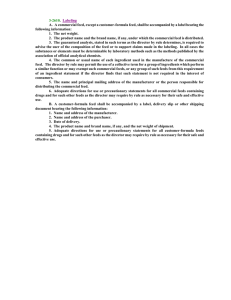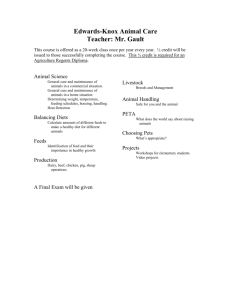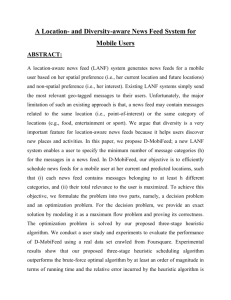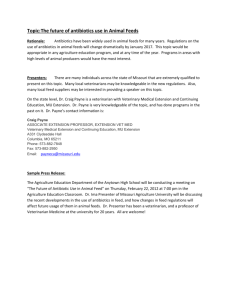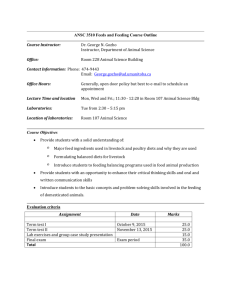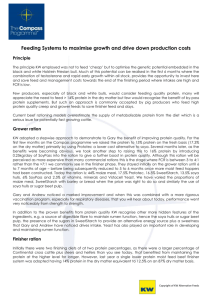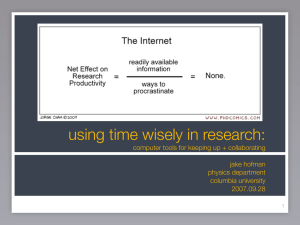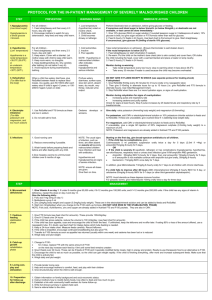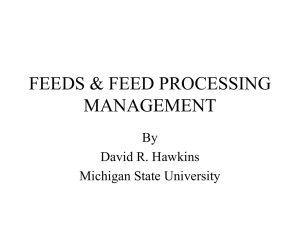Better value not lower price keeps true feed costs under control
advertisement
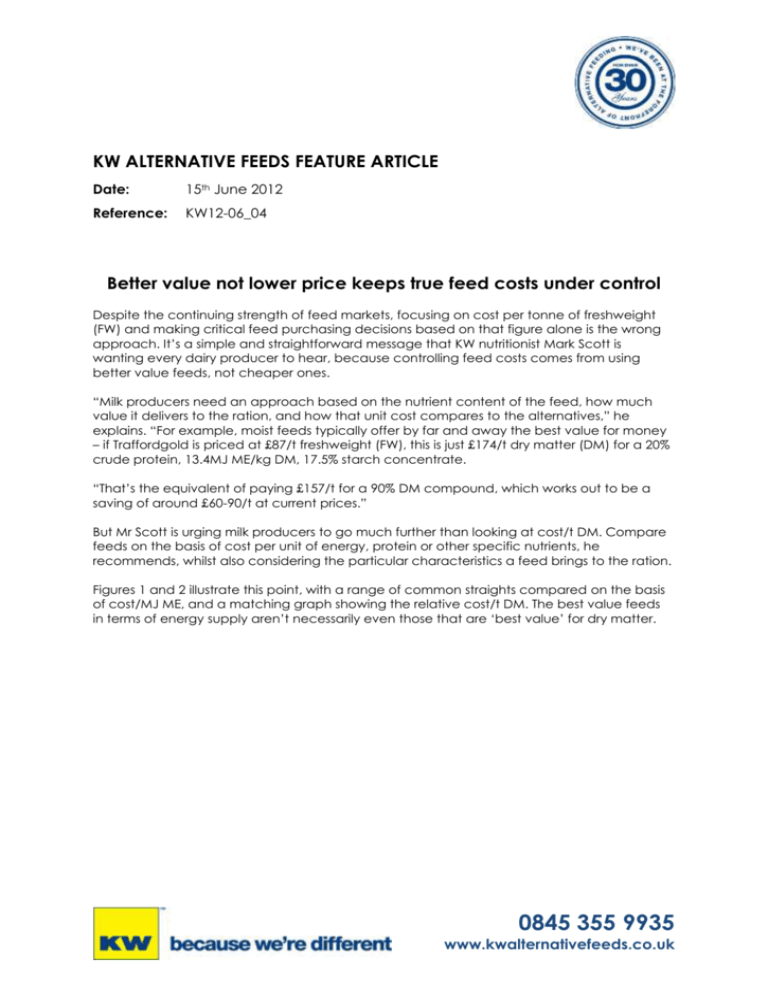
KW ALTERNATIVE FEEDS FEATURE ARTICLE Date: 15th June 2012 Reference: KW12-06_04 Better value not lower price keeps true feed costs under control Despite the continuing strength of feed markets, focusing on cost per tonne of freshweight (FW) and making critical feed purchasing decisions based on that figure alone is the wrong approach. It’s a simple and straightforward message that KW nutritionist Mark Scott is wanting every dairy producer to hear, because controlling feed costs comes from using better value feeds, not cheaper ones. “Milk producers need an approach based on the nutrient content of the feed, how much value it delivers to the ration, and how that unit cost compares to the alternatives,” he explains. “For example, moist feeds typically offer by far and away the best value for money – if Traffordgold is priced at £87/t freshweight (FW), this is just £174/t dry matter (DM) for a 20% crude protein, 13.4MJ ME/kg DM, 17.5% starch concentrate. “That’s the equivalent of paying £157/t for a 90% DM compound, which works out to be a saving of around £60-90/t at current prices.” But Mr Scott is urging milk producers to go much further than looking at cost/t DM. Compare feeds on the basis of cost per unit of energy, protein or other specific nutrients, he recommends, whilst also considering the particular characteristics a feed brings to the ration. Figures 1 and 2 illustrate this point, with a range of common straights compared on the basis of cost/MJ ME, and a matching graph showing the relative cost/t DM. The best value feeds in terms of energy supply aren’t necessarily even those that are ‘best value’ for dry matter. 0845 355 9935 www.kwalternativefeeds.co.uk 1.70 1.60 p/MJ ME 1.50 1.40 1.30 1.20 1.10 1.00 Figure 1 – Comparison of feeds on the basis of cost per unit of energy 250 £/t dry matter 200 150 100 50 0 Figure 2 – Comparison of feeds on the basis of cost per unit of dry matter “Another good example is the high quality rumen-bypass protein that’s vital in supporting high yields and cow health,” Mr Scott continues. “Also called digestible undegraded protein (DUP), comparing the options on the basis of DUP supply (table 1) shows that the specialist rumen-bypass protein supplements are actually more cost-effective than soyabean meal.” 0845 355 9935 www.kwalternativefeeds.co.uk Table 1 – Comparison of alternative sources of rumen-bypass protein 1 Price 1 (£/t) DUP cost (p/100g DUP) Energy content (MJ ME/kg DM) SoyPass (rumen-protected soyabean meal) 405 13.1 13.5 ProtoTec (heat-treated rapemeal) 247 16.7 12.2 Bio-ethanol wheat distillers’ feed 201 19.4 13.7 Hi-pro soyabean meal 347 19.5 14.0 Rapemeal 205 21.1 11.8 Prices quoted correct at time of going to press, 29t bulk deliveries Nov-Apr on-farm within 50 miles of source, prices will vary with load sizes and distance from source. It’s also important to take into account the impact a feed has on rumen fermentation, balancing home-grown feeds or meeting a specific requirement of the cow. The quickly available energy supplied by starch or sugars that helps to drive milk yield has a different role in the ration than rumen buffering digestible fibre or caustic-treated wheat, for example. “Make sure you’re comparing like-with-like, or at least taking into account the value a feed brings to the ration outside its nutrient content,” Mr Scott adds. A similar challenge exists when assessing feeds that supply both energy and protein. What the figures in table 1 don’t show is that because of the high energy supply in bio-ethanol wheat distillers’ feed relative to its protein content, using it to directly replace a 55:45 mix of soyabean meal and wheat will typically save the equivalent of £30-50/t. “So keep an open mind, don’t overlook the opportunity to source nutrients from ‘nontraditional’ sources, and develop a flexible feeding system able to utilise whichever type of feed is best value at the time,” states Mr Scott. “High-protein liquid feeds like Spey Syrup can often supply protein more cost-effectively than rapemeal (plus supply an extra 2.2MJ ME/kg DM), moist feeds are a better value source of energy than dry concentrates, and distillers’ feeds contain high quality protein that can help replace traditional protein meals. Just make sure you compare feeds on the basis of their true cost before making any buying decisions.” 0845 355 9935 www.kwalternativefeeds.co.uk
